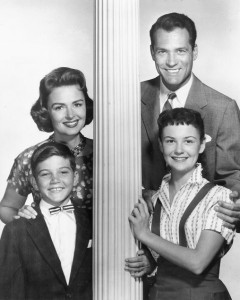So it turns out the guy Pope Francis hugged and kissed to such great fanfare last November 6 does have a name. It’s Vicino Riva. It also turns out he has a history. Now 53, Riva lives in Vicenza, just west of Venice. His tumors began growing when he was 15; both he and his sister, Morena, seem to have inherited neurofibromatosis from their mother, Rosaria. They now live with their aunt, Caterina Lotto, who supports them on her retirement pension.
Thanks to Lotto, neither Riva is a total stranger to physical affection. As she told the magazine Panorama, she used to hug the young Vicino in hospital waiting rooms, especially when other patients showed signs of fear or horror. Though Riva’s condition still draws stares and other unpleasant reactions, he leads an active social life, watching soccer with old friends and classmates.
Growing up, he was apprenticed to his father, a construction worker. Now, he volunteers in a nursing home. Riva says he flirts with the nurses and spends a good portion of his stipend buying flowers for them.
In this, one might joke — hey, I will joke — that Vicino Riva remains a true son of his Fatherland, even in adversity. But for a looky-loo like me, the most edifying details of his story can be found in the moments just before his encounter with Pope Francis. Riva did not expect to be hugged. He didn’t solicit it — apparently, many people unfamiliar with the disease assume it’s transmissible through skin contact. Instead, Riva, confined for the moment to a wheelchair because the tumors on his feet had made standing into an ordeal, observed protocol by kissing the pope’s ring.
“Then,” Riva told Panorama, “Pope Francis pulled me toward him, hugging me tight and kissing my face. My head was against his chest and his arms were wrapped around me. He held me so tightly, cuddling me, and he didn’t let go. I tried to speak, to say something, but I wasn’t able to: I was too choked up.”
The effect of the pope’s touch seems to have taxed Riva’s descriptive powers to their limit. “I felt as though my heart was leaving my body,” he said, adding that the papal embrace “lasted just over a minute, but to me it seemed like an eternity.” Riva also compared the feeling to “being in paradise.”
Elsewhere on Patheos, Calah Alexander has been doing yeowoman’s service puncturing “sentimental claptrap” — reductive and misleading catchphrases she says form the common tongue of evangelical Protestant youth ministries. Among these is “God will never give us more than we can handle,” the “more” in this case referring to difficulty. Here, with Vicino Riva, we have a case of God (acting through the Servant of His Servants) giving someone more good than he seems to have thought he had a right to expect.
All grace is unearned, but grace doesn’t always come in the form of good fortune or agreeable sensations. Most believers figure this out early on. They console themselves reading Flannery O’Connor, the Christian literary canon’s answer to Grumpy Cat. As for me, I’ve never felt quite right about hitting God up for personal favors. I’m afraid He’ll punish me for my desire by giving me what I want, but with a horrible twist meant to teach me a lesson.
Lay Dominican Will Duquette has derived the Pony Principle, according to which we’re supposed to approach God with our wildest desires in the same spirit as we’d ask our parents for a pony — “You probably won’t get it—but if you don’t ask for a pony, you certainly won’t get it.” My version of the Pony Principle goes like this: You’ll get your pony, all right. And then you’ll have to grab a pitchfork and start cleaning up after the damn thing. (Yes, I know. As my friend the mounted policeman likes to point out, it’s mostly hay. But still.)
Or else I’ll think in terms of the Land of Milk and Honey Principle. Here, God gives you exactly what you want, which in the long run serves only to leave you feeling all the worse when you squander His gift by doing something boneheaded. If ever, staring numbly at the four-door accordion that used to be the Mazda 626 your dad gave you for your birthday, you’ve had to explain to Sheriff’s deputies why you thought it was a capital idea to make a left-hand turn from the center lane, you’ll grasp the concept.
No, more often than not, my prayer life boils down to muttering, “Everything that in useful in Your plan, O Lord.” I call that the Cinderella Principle — a hopeful paradox that holds you will catch God’s eye quickest by being dutiful and generally undemanding. I’ll make bold to lodge requests only when they concern other people’s problems, since that’s good for the brand.
To tell you the truth, I’m stumped on which principle, or principles, Vicino Riva’s case tends to support, since he hasn’t stated for the record what, if anything, he was asking of God. And it’s not like God healed his tumors, which had to be uppermost on his wish list. But, in his own words, he did get a taste of Paradise. Is that as good as a pony? I hope so.
Anyway, I’d better shut up. Theologians are welcome to debate this. Beyond this point, all I’m capable of doing is dropping pious road apples.











